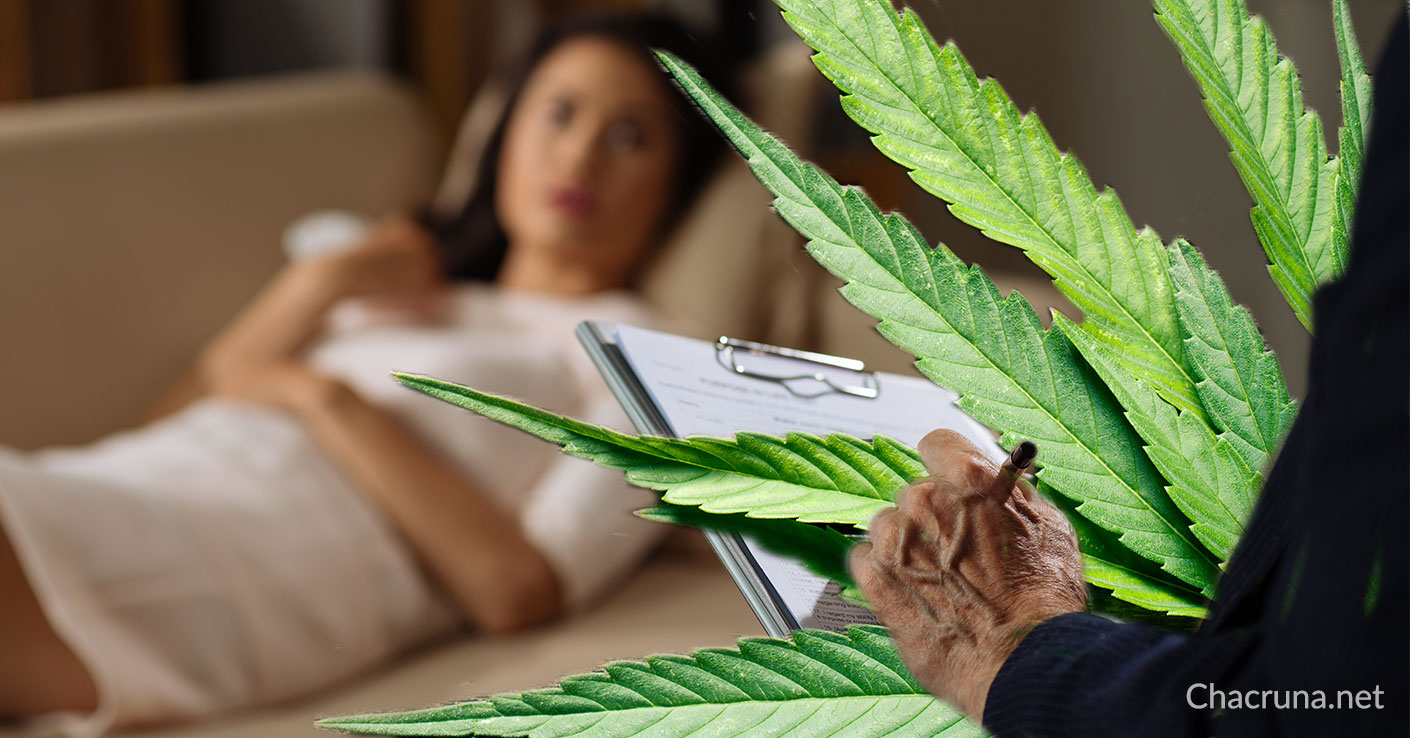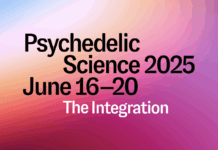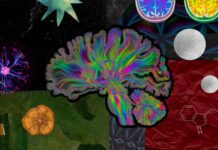- Why I Became a Cannabis Researcher - March 1, 2017
CBD (cannabidiol) oil cures depression. CBD can treat schizophrenia. Everyone sleeps better on CBD. CBD oil really seems to help reduce anxiety. I do not think all of this is true, but some of it might be. The hype about the medical benefits of cannabis clearly out weighs the evidence right now in many settings. The list of purported therapeutic miracle cures for CBD grows longer each day.
Websites tell me that it can eliminate pain, trauma, diabetes, inflammation, fibromyalgia, depression, MS and irritable bowel. However, the human trials using CDB to treat psychiatric illness are very limited.1
I really wanted to know how useful cannabadiol (CBD) oil was for two common psychiatric problems: insomnia and anxiety. I am a psychiatrist who loves to avoid prescribed psychiatric medications in my attempt to reduce suffering; to do that I need tools that really work, not just hype. A few promising studies on CBD for psychiatric problems exist, but not enough.
CBD is one common and important chemical component found in the cannabis plant. It has a calming effect. In fact, in important key brain centers, it has almost the exact opposite effect of THC, the part of cannabis that gets you high.2 I did smoke some pot back in the day, but often didn’t enjoy it much, as it could make me anxious. A beer seemed relaxing and more predictable. After reading and talking to folks much more experienced in this realm, I found that simply by altering the ratio between THC (makes you high, anxious and hungry) and CBD (makes you relaxed, calm and sleepy) you can dial in the experience that you want with cannabis to avoid anxiety; just increase the CBD in the mix and reduce the THC. This folklore is consistent and widespread in the cannabis community, but we need more than folklore.
Cannabis itself is not a psychiatric panacea. Some research indicates that THC abuse can make people more prone to psychosis, paranoia, and cognitive problems.3 As a psychiatrist who often works with pediatric populations, these effects concern me. I have seen the problems of cannabis abuse and dependency far too often in teens and young adults. I have a protective side and from my work as a psychiatrist, I believe cannabis abuse, in some teens, may impair their ability to sort out a productive path to adulthood.
The relationship between plants and humans is not black and white. Some people are more vulnerable than others. My first mentor, Andrew Weil, taught me that the concern is not about the plant itself but about your relationship to the plant. Some people can develop a bad relationship with cannabis.
I work in an integrative psychiatric clinic where we focus on diet, mind-body skills, herbs, acupuncture, and other natural tools to help people restore mental health and balance. In my practice, I see lots of people with severe insomnia and anxiety (they often go together). As a potential medicine for these problems, CBD seemed too good to be true. It reportedly had none of the baggage of THC, few side effects, and potent psychiatric benefits.
We had a few patients at our clinic that reported near miraculous results with CBD. More patients were asking about it. So, I had to sort this out for myself. I was simply too impatient to wait a few years for the publications on CBD to catch up to me. This is how I started down the path of doing clinical research on CBD.
Many of the providers at our clinic had already discovered the benefits of CBD. Our psychiatrists, nurse practitioners, naturopaths, and PA recommended it frequently for a range of problems such as trauma, insomnia, thought disorder, anxiety, and obsessive-compulsive disorder. I work in a large clinic with over 8,000 patients, most of whom like the idea of avoiding psychiatric medication, if at all possible. I discovered that the most common symptoms that we prescribed CBD for in our patients were insomnia and anxiety. After I obtained Institutional Review Board (IRB- protects patients in any research endeavor) approval we began to sort out the data.
The data was easy to collect; CBD had been used in over 130 patients for insomnia or anxiety. The patients ranged from 6 to 70 years old. Some had been on CBD oil for nine months, most for at least 3 months. After we crunched the data, we had at least one surprise. CBD did not seem to help sleep. Our patients thought they were sleeping better, but maybe they were just less anxious about their sleep. Their sleep showed a slight early benefit (placebo effect?) that faded in a few weeks. However, it did seem to have a quick and sustained benefit for anxiety. The benefit for anxiety appeared real and endured over many months; we did not see a drop off after month or two like we did for sleep. I now use CBD frequently in my work with anxious patients.
CBD looks safe. Reported side effects appeared to be very minimal. In our study, a few patients were more tired; we certainly had fewer complaints than we encounter with psychiatric medications. But, CBD is not cheap and the cost seems to be the biggest drawback. Also, the DEA continues to act like cannabis has no medical value. Really? Over 300 scientific papers are published on the potential benefits of CBD alone each year.
We still have a way to go, but, as a psychiatrist searching for more safe tools to treat mental health issues, CBD looks very promising for anxiety; however, according to our forthcoming research, not necessarily as promising for sleep disorders.![]()
References
-
Bergamaschi, M. M., Queiroz, R. H., Chagas, M. H., de Oliveira, D. C., De Martinis, B. S., Kapczinski, F., … Crippa, J. A. (2011). Cannabidiol reduces the anxiety induced by simulated public speaking in treatment-naïve social phobia patients. Neuropsychopharmacology, 36(6),1219–26.
de Mello Schier, A. R., de Oliveira Ribeiro, N. P., Coutinho, D. S., Machado, S.,Arias-Carrión, O., Crippa… Silva, A. C. (2014). Antidepressant-like and anxiolytic-like effects of cannabidiol: a chemical compound of Cannabis sativa. CNS Neurol Disord Drug Targets, 13(6), 953–60.
Khoury, J. M., Neves, M. C., Roque, M. A., Queiroz, D. A., de Freitas, A. A., de Fátima, Â. … Garcia, F. D. (2017). Is there a role for cannabidiol in psychiatry? World J Biol Psychiatry, 23,1–34. doi: 10.1080/15622975.2017.1285049.
Leweke, F. M., Piomelli, D., Pahlisch, F., Muhl, D., Gerth, C. W., Hoyer, C. … Koethe, D. (2012). Cannabidiol enhances anandamide signaling and alleviates psychotic symptoms of schizophrenia. Transl Psychiatry, 2, e94.
Zuardi, A. W., Hallak, J. E., Dursun, S. M., Morais, S. L., Sanches, R. F., Musty, R. E., & Crippa, J. A. (2006). Cannabidiol monotherapy for treatment-resistant schizophrenia. J Psychopharmacol, 20(5), 683–6. ↩
-
Leweke, F. M., Piomelli, D., Pahlisch, F., Muhl, D., Gerth, C. W., Hoyer, C. … Koethe, D. (2012). Cannabidiol enhances anandamide signaling and alleviates psychotic symptoms of schizophrenia. Transl Psychiatry, 2, e94.
Weinstein, A., Livny, A., & Weizman, A. (2016). Brain imaging studies on the cognitive, pharmacological and neurobiological effects of cannabis in humans: Evidence from studies of adult users. Curr Pharm Des. 22(42), 6366–6379.
-
Crean, R. D, Crane, N. A., Mason, B. J., (2011). An evidence based review of acute and long-term effects of cannabis use on executive cognitive functions. J Addict Med, 5(1),1–8.
Freeman, D., Dunn, G., Murray, R. M., Evans, N., Lister, R., Antley A. … Morrison, P. D. (2015). How cannabis causes paranoia: Using the intravenous administration of ∆9-tetrahydrocannabinol (THC) to identify key cognitive mechanisms leading to paranoia. Schizophr Bull, 41(2), 391–9.
Wilkinson, S. T., Radhakrishnan, R., & D’Souza, D. C. (2014). Impact of cannabis use on the development of psychotic disorders. Curr Addict Rep, 1(2), 115–128.
Take a minute to browse our stock:
Did you enjoy reading this article?
Please support Chacruna's work by donating to us. We are an independent organization and we offer free education and advocacy for psychedelic plant medicines. We are a team of dedicated volunteers!
Can you help Chacruna advance cultural understanding around these substances?














